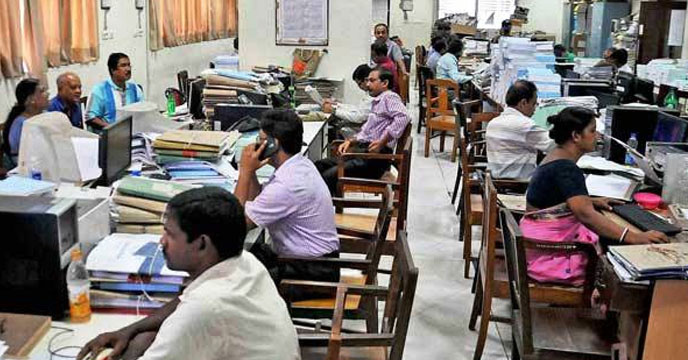India’s weekly work time dynamics are about to change, as the central government is planning to introduce new labour rules from next month that is July 1, 2022. With the new labour rules, there will be a significant change in an employee’s EPF payments, office working hours, and salaries.
According to reports, the Central Government has been working on the four new labour rules, under which the employee’s salaries, PF contributions, and working hours will see a huge change. Though the government has not made any official announcement, reports have suggested that the new four Labour Codes might be implemented from next month, to be exact from July 1.
The new Labour Codes will lay down an array of reforms relating to wages, social security (pension, gratuity), labour welfare, health, safety and working conditions (including that of women).
What will change?
Change in Working hours
With the new Labour rules, employees will allowed to take three weeks off once the new law goes into effect. However, weekly working hours would not be reduced that means the employees will need to work 10 to 12 hours each day for four days if they want to take the remaining three days off, said reports. Furthermore, for a quarter, the maximum hours of overtime will increase from 50 hours (under the Factories Act) to 125 hours (across all industries).
It should be noted that under the new Labour Codes, the government is willing to provide the benefits to the employees being categorised as workers only. However, the working hours and leave of managerial, administrative and supervisory staff, will still be governed by the respective Shops and Establishment legislation of the state government.
Effect of employees pay
Another significant shift will be the ratio of take-home pay to employee and company contributions to the provident fund. According to the new laws, the employee will get a basic wage of 50% of their gross salary. While both the employee and the employer’s PF payments would increase, some employees’ take-home pay will fall, particularly those in private firms.
Effect on retirement
According to the new labour codes, the government may increase the amount of money received after retirement, as well as the gratuity amount. Employees will be able to live a better life after they retire as a result of this initiative.
Changes on Leave
The new labour regulations will also affect the regulation for taking a leave. The government wants to simplify the types of leave that employees can take during their employment. The policy of carrying over unused vacation time to the next year, as well as the encashment of vacation time, is being reviewed. In its draught model applicable to the service industry, the government also recognises the work-from-home structure, which has become popular under Covid-19.
On August 8, 2019, the central government announced the Code on Wages, 2019 and three other labour codes namely, the Code on Wages, 2019, the Industrial Relations Code, 2020, the Code on Social Security, 2020, and the Occupational Safety, Health, and Working Conditions Code, 2020 on September 29, 2020. So far, 23 states have enacted legislation based on these codes, which have been approved by Parliament.
Also Read: 7th Pay Commission: Central Govt Employees Can Get Up To Rs 30,000 Apart From Salary, Know How




 Ms Kalinga
Ms Kalinga